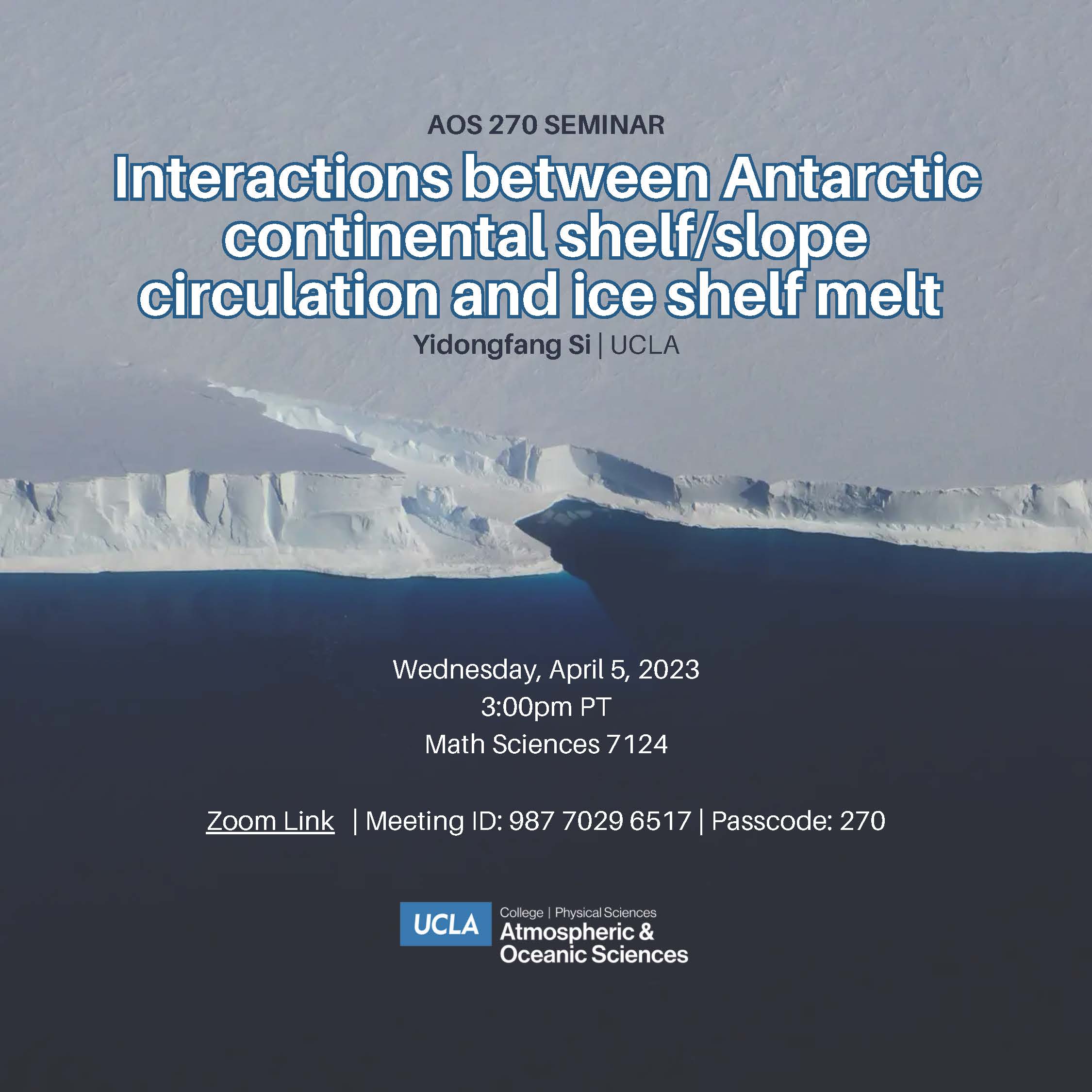Abstract:
The Antarctic Slope Front (ASF) is a strong gradient in water mass properties close to the Antarctic margins, separating warm water from the Antarctic ice sheet. Heat transport across the ASF is important to Earth's climate, as it influences melting of ice shelves, the formation of bottom water, and thus the global meridional overturning circulation. Previous studies based on relatively low-resolution global models have reported contradictory findings regarding the impact of increased melting of the Antarctic ice sheet on heat transport across the ASF: it remains unclear whether meltwater enhances shoreward heat transport, leading to a positive feedback, or further isolates the continental shelf from the open ocean.
In this study, the heat transport across the ASF is investigated using eddy- and tide-resolving, process-oriented simulations. It is found that melting of ice shelves leads to increased shoreward heat transport by stronger eddy-driven heat advection or stronger bathymetric steering of warm water toward the ice shelf. This implies a positive feedback in a warming climate: large volumes of meltwater increase shoreward heat transport, causing further melt of ice shelves. Our study highlights previously unrecognized climate feedbacks that may be key to projecting future changes in Antarctic ice sheets and thus sea level rise.

